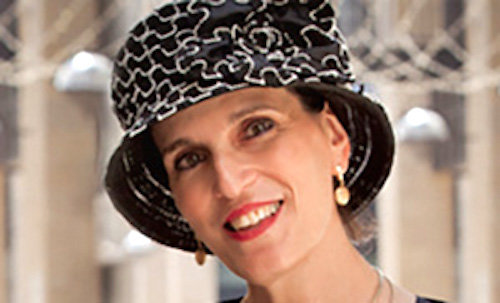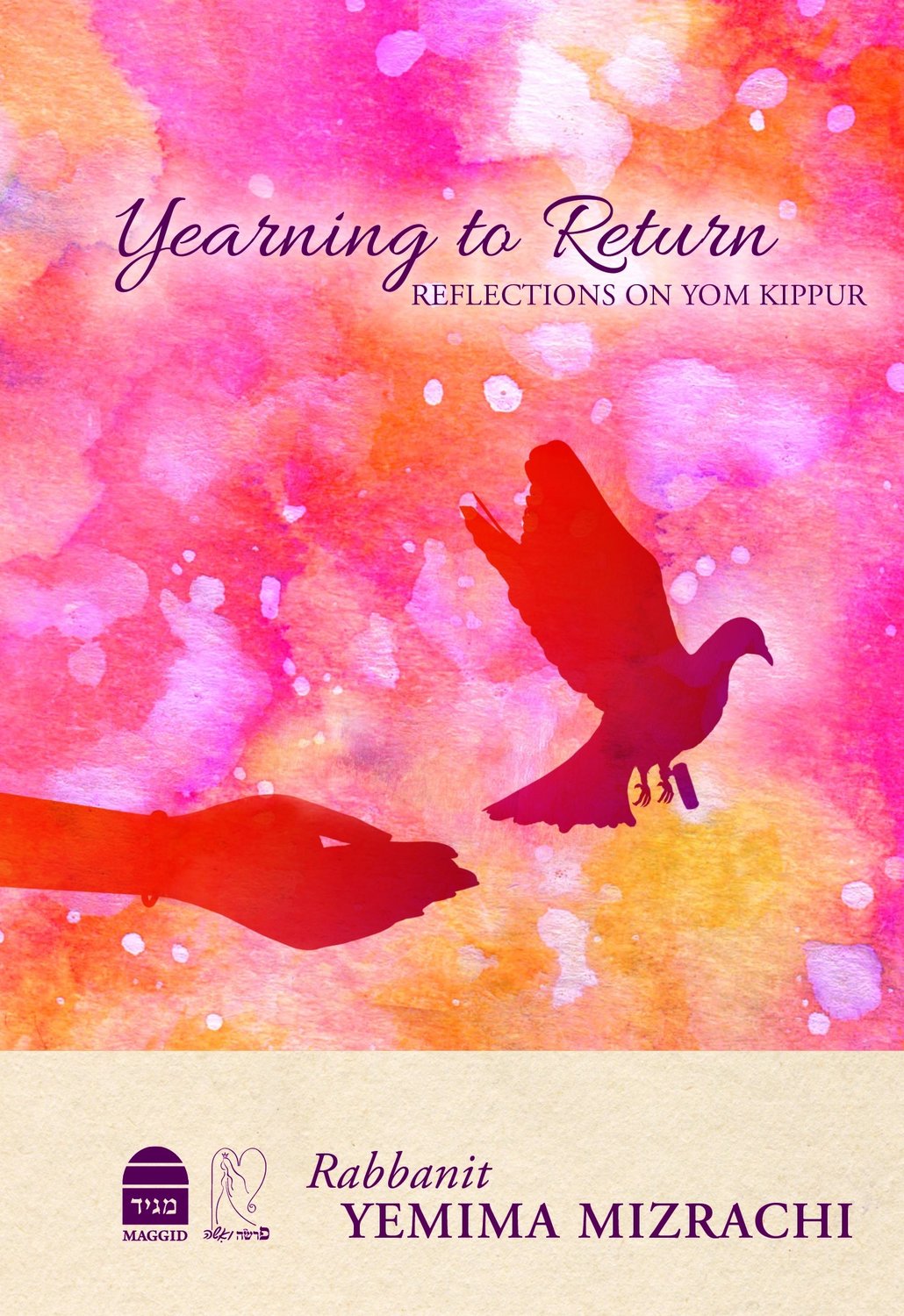Yearning to Return: Reflections on Yom Kippur
With Yom Kippur just around the corner it is my honor to inform you of a new book authored by the prominent author, teacher and Israeli inspirational speaker Rabbanit Yemima Mizrachi, titled, “Yearning to Return: Reflections on Yom Kippur” (Maggid Books).
Since 2001, she has given weekly lectures in Jerusalem that are now attended by thousands of women of all ages and religious affiliations. Recordings of her classes are disseminated throughout the Jewish world. In addition to her work on religious ideas and thought Rabbanit Mizrachi is an attorney and rabbinical court advocate.
As a public religious figure, she speaks about a wide variety of topics — the weekly Torah readings, religious faith and theology, marriage issues and relationships, Jewish religious practice, and holiday rituals and liturgy.
The book presented in this week’s essay focuses on the holiest day of our faith, Yom Kippur. In her introduction the author wirtes:
“Over the course of the year we continue to question and doubt one another’s virtues, which makes it impossible to return. … The time has come, once and for all, for the people of Israel to stop demanding as accounting from one another, and to start holding ourselves accountable to G-d.”
Further on she notes, “This book may be regarded as a collection of all the questions that are forever being asked.”
“Yom Kippur is a time of opening. Books are opened, gates are unlocked, hearts overflow with emotion… This is the time to ask for everything that seems impossible. In a moment the gates will be locked. The shofar will be sounded.”
With that said the balance of this week’s column will be a presentation of essays by Rabbanit Yemima Mizrachi.
May I take this opportunity to extend to you my best wishes for a G’mar Chatimah Tovah.
• • •
By Rabbanit Yemima Mizrachi
What do we do during the Ten Days of Repentance?
Maimonides explains in his Laws of Repentance that repentance consists of three basic steps. First comes the recognition that one has sinned. A person says,
“Oh no, how could I have done such a thing?” Next comes confession: “I have sinned, I have transgressed.” And here it is important to note that unlike Christianity, where confession constitutes atonement, Judaism maintains that the commandment to confess is merely the beginning of a process that includes the obligation to reconcile with those we have wronged. The third step is the resolution not to repeat that particular sin in the future.
These three steps — recognition, confession, resolution — are reasonable and logical, as we would expect of Maimonides the rationalist. But then Maimonides introduces another concept that is not at all Maimonidean: remorse. Remorse is not rational but romantic. The sinner thinks, “What was I doing? What an idiot I was. And now I’m all alone.”
In his book On Repentance, Rabbi Joseph B. Soloveitchik (1903–1993) cites the biblical story of Abigail, the wife of Nabal the Carmelite. Abigail loves her husband, a man who is landed and wealthy but also wicked. When King David arrives to kill Nabal, Abigail hastens to plead on her husband’s behalf: “Do not let this be a cause of stumbling and of faltering courage to my lord that you have shed blood needlessly” (I Sam. 25:31). Her devotion is so great that she has the power to stay the arm of a king who is bent on manslaughter.
Abigail draws on the same reserves of strength to rebuke her husband for what he has done to her. Shall she be left all alone on account of his iniquity? So fervent is her devotion that her words break through to him: “His heart died within him, and he became a stone” (I Sam. 25:37). The Bible goes on to relate that “about ten days later, the L-rd struck Nabal and he died” (I Sam. 25:38). In other words, Nabal the Carmelite died during the Ten Days of Repentance. This raises questions for the rabbis, because the Ten Days of Repentance are intended for those who are neither righteous nor wicked but are somewhere in the middle, whereas Nabal is clearly wicked. But his wife’s devotion accrues him merit. She urges him to repent lest she be left all alone. On account of his remorse, he merits to repent.
Every one of us has an inner Abigail. In the immortal words of Rabbi Soloveitchik, “An Abigail follows every sinner.” When we feel most like Nabal, our inner Abigail will remind us that there is a great love that we are at the risk of losing. She will signal to us, “Repent! Turn back! Make a U-turn before it’s too late.” During the Ten Days of Repentance, we try to listen to this voice.
Lighting candles and blessing children
Yom Kippur begins with candle lighting. There is a custom to light one candle for each member of the household to ensure that they merit to lead long lives. This is known as a “candle of the healthy.” If any of the candles is extinguished, it may not be rekindled on Yom Kippur, but it should be lit after the end of Yom Kippur and allowed to burn completely.
There is also a custom of lighting yahrtzeit candles to elevate the souls of the dead. The Sages advise not to place the yahrtzeit candle next to the candles lit for the living members of the household.
There is a special blessing for children recited while standing beside the candles. The custom is to lay one’s hands on the child’s head and to recite the language of the priestly blessing (Num. 6:22–27). This is followed by the blessing for children that appears at the beginning of the machzor and is printed in the next chapter of this book.
But even if one does not know the traditional liturgy, it is important to bless one’s children on Erev Yom Kippur. A person can just say whatever blessings come from the heart. Rabbi Alexander Ziskind, who lived in Grodno in 1818 and wrote Yesod VeShoresh HaAvoda, advises adding brief words of rebuke to one’s blessing, such as “This year you won’t fight with your sister,” or “This year you will learn to control your anger.” According to Rabbi Ziskind, these words of rebuke are in fact a great blessing that will accompany the children throughout the entire year.
There is a tradition that the moment of blessing children beside the candles corresponds to the moment when Jacob blessed his grandsons Menashe and Ephraim. Tradition holds that blessings offered at this solemn moment are fulfilled.
When my father, may his memory be for a blessing, would bless me on Erev Yom Kippur, I would break out in tears. Sometimes he would bless me in person, and sometimes over the telephone. But each time I was overcome by gratitude that my father was still present to bless me, and that I merited his blessing.
Rabbi Eliezer Papo (1785–1826), known as the Pele Yoetz, writes that blessing children at the start of Yom Kippur serves to counteract any curses that might otherwise threaten them. The blessing offered by a mother or father, even if offered over the telephone, serves to ward off any evil decree that looms. This moment of blessing children is one of tremendous divine mercy, in which the parents are able to tear open the fabric of the heavens for the sake of their children. It is hard for the parents not to cry.
The blessing of one’s children is a magical moment that takes place just prior to leaving for synagogue for the Kol Nidrei prayer. It is a very stressful time, but it is important not to miss this opportunity. As every mother and father knows, sometimes the only way we can help our children is by tearing open the fabric of the heavens.

 39.0°,
Fair
39.0°,
Fair 







